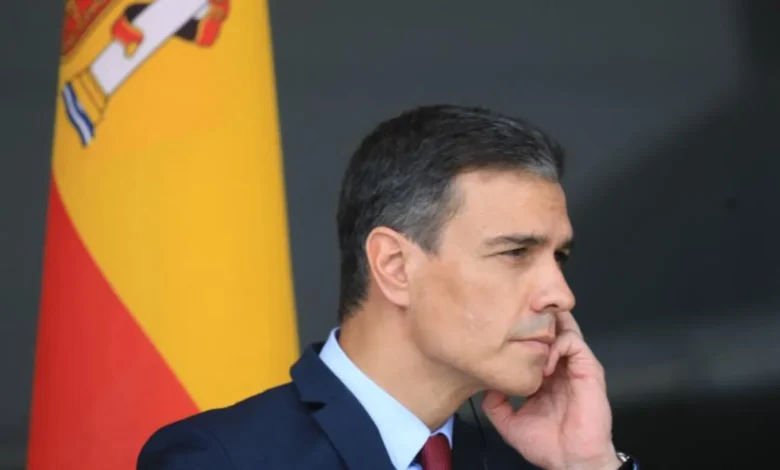Corruption scandals in Spain shake Mediterranean geopolitics

The Spanish government and state institutions are under investigation by special operational units of the Civil Guard, Judicial Police, and other anti-corruption bodies.
Prime Minister Pedro Sánchez, as head of the Spanish government and Secretary General of the Socialist Workers’ Party (PSOE), in power since June 2018, is seen as a potential key figure in the corruption scandals affecting his party, the government, and his immediate family—his wife Begoña Gómez, his brother David Sánchez, and other relatives—by both the political and parliamentary opposition and prominent members of the judiciary.
The last two PSOE Organization Secretaries, José Luis Ábalos and Santos Cerdán, are suspected of organizing large-scale corruption and receiving commissions for awarding million-euro contracts to Spanish and foreign companies—including those from Algeria and Morocco. Both were forced to resign from their posts in the party, the government, and the presidential office at La Moncloa.
These are not minor scandals involving “close friends of Sánchez” but major ones, with the top leadership of the PSOE and the Moncloa network at their core.
While Sánchez is the chief executive, the two men—Ábalos and Cerdán—have handled the corruption schemes and internal political balances that enabled the coalition to gain and maintain power for two consecutive terms.
The PSOE did not win the 2018 general election; it came second in votes and seats. The Popular Party won but failed to form a coalition. Sánchez, instead, allied with Podemos and secured parliamentary support from various Basque, Catalan, republican, and regionalist groups, forming a majority in the Congress.
However, the main scandal lies within the PSOE. According to investigators, the party holds 482 bank accounts in 35 banks and 62 safety deposit boxes. Judicial authorities have requested intervention.
These ongoing corruption scandals, likely to bring prominent political and business figures to trial, are not the first in Spain but may have the most devastating effects on its international role, especially within the EU and Mediterranean geopolitics.
Sánchez’s refusal to call early elections—despite demands from the opposition and sectors of his own party and government—raises fears of worse to come.
The “Sánchez network” is compared to corruption cases involving Nicolas Sarkozy in 2016 and Bettino Craxi in the 1990s. Sarkozy was convicted of attempting to bribe Supreme Court judges, and Sánchez is suspected of strongly defending the Attorney General. Craxi was convicted of bribery and went into exile in Tunisia, where he died in 2000.
In Italy, Craxi resigned before trial. In France, Sarkozy was pushed out by his party. In Spain, Sánchez clings to power—but may meet the same fate.
The key difference lies in geopolitical impact. The French and Italian crises had little effect on Mediterranean relations, largely maintained through the 5+5 Dialogue (Portugal, Spain, France, Italy, Malta + Mauritania, Morocco, Algeria, Tunisia, Libya) and the Union for the Mediterranean, based in Barcelona and uniting 43 nations.
Although the last major summit was in 2003, specialized commissions (economy, trade, migration, defense…) have continued functioning.
The potential collapse of Sánchez’s network may deeply affect Mediterranean balance, as he has personally made the most crucial decisions.
He accepted Morocco’s autonomy plan for Western Sahara without consulting the Spanish government or parliament—triggering a crisis with Algeria.
He recognized Palestine and froze relations with Israel, upsetting the EU, US, France, Italy, Morocco, and Mauritania. This cost Spain its role as mediator in the Israeli-Palestinian conflict.
He also tried and failed to rally Europe against Donald Trump. Finally, he pushed the EU into strong military support for Ukraine, straining relations with the Mediterranean and African South.
If the opposition (Popular Party) regains power, ties with North Africa may shift. Morocco will seek to rebalance ties with Madrid, while Algeria may emerge from diplomatic isolation, possibly restoring the golden age of relations under Bouteflika and Aznar—provided both governments act wisely.
This shift wouldn’t necessarily harm ties with Morocco. Both Spain and Algeria can benefit from pragmatic relations with the Kingdom—if intelligence and public interest prevail.
By Pedro Canales





